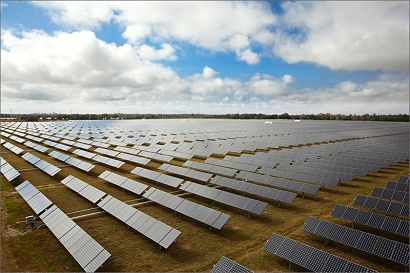
The paper, ESG 2.0: How to Improve ESG Scoring to Better Reflect Renewable Energy Use and Investment, outlines how a fragmented marketplace, a lack of transparency in rating methodologies and a failure to focus on truly material information can lead to “sustainability” investments that do not necessarily drive renewable energy deployment or lower greenhouse gas emissions.
“ESG scoring today does not sufficiently reflect investment in, and deployment of, renewable power, which is an indispensable part of the climate solution and a critical barometer of carbon emissions” said ACORE President and CEO Gregory Wetstone. “To accurately measure the climate impact of ESG investments, a more transparent, standardized, material and forward-looking approach is needed.”
David Giordano, ACORE Board Chairman and Global Head of Renewable Power at BlackRock, added that investors and issuers alike find it difficult to navigate inconsistent and incomplete ESG data, which underscores the need for agreed upon reporting standards.
“As BlackRock continues to grow the range of sustainable investing solutions that we offer, including in renewable power, we recognize the importance of increased transparency and reporting on material ESG factors so that investors can better understand the environmental risks and opportunities associated with their investments as well as the climate-related impact of their capital” Giordano said.
ESG 2.0: How to Improve ESG Scoring to Better Reflect Renewable Energy Use and Investment includes the following recommendations:
Enhance Renewable Energy Disclosure in Scope 1-3 Emissions. The extent to which companies drive additionality through their methods of renewable energy procurement, i.e., whether they add new renewable generation to the grid, should be more accurately captured in companies’ Scope 1-3 emissions reporting for their ESG scores.
Provide Credit for Avoided Emissions. Capital providers should receive credit for avoided GHG emissions attributable to their investment decisions.
Implement Standardized, Material and Forward-Looking Data Reporting. To provide meaningful comparisons, ESG scoring should increasingly rely on widely agreed upon data inputs. In order to be impactful, ESG scoring based on that widely agreed upon data should include forward-looking analysis capable of holding rated companies accountable for progress over time.
Adopt a Universal Climate Benchmark. ESG scoring should help accelerate the transition to a decarbonized economy. International initiatives, like the Paris Climate Agreement and U.N. Sustainable Development Goals, can provide a common global benchmark against which companies’ ESG performance can be judged.
For additional information:

